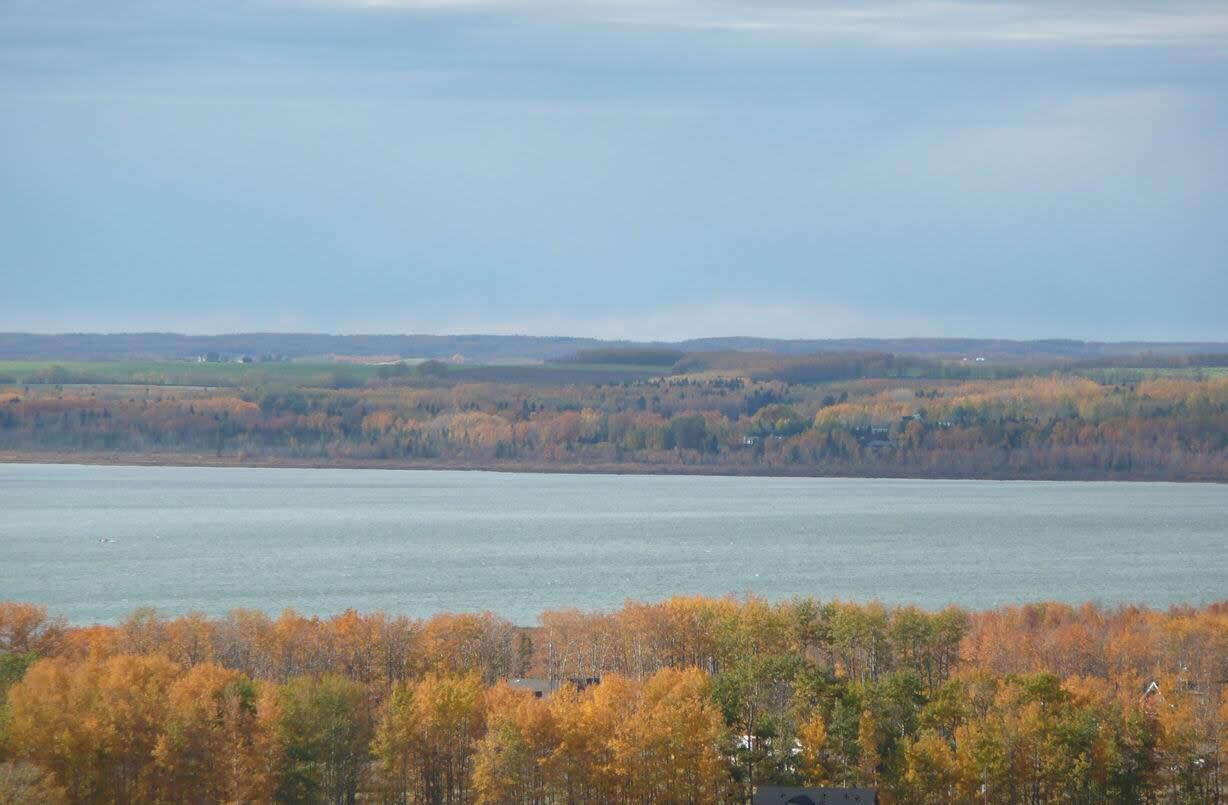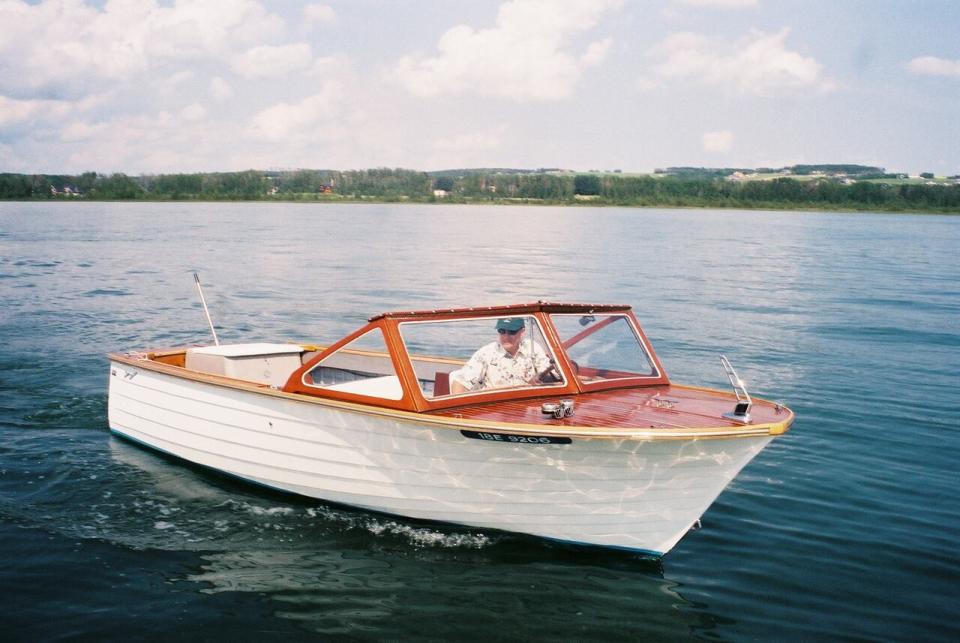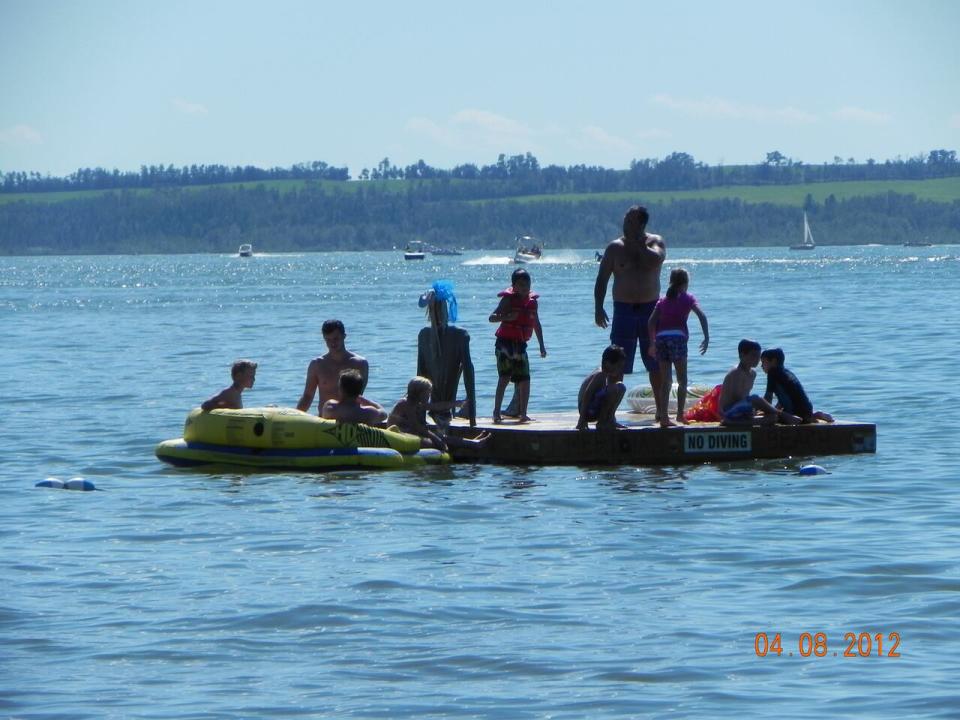Gull Lake water levels continue to concern advocacy group

Facing the lowest water levels in decades and an impending drought season that threatens water supply across the province, a volunteer advocacy group fears for the worst for the future of one central Alberta lake.
Water pumped from the nearby Blindman River has kept Gull Lake, a popular water body about 30 kilometres north of Red Deer, Alta., at a healthy level for nearly 40 years.
But after an invasive fish species started plaguing the river, forcing the province to halt all pumping efforts in 2018 to prevent Prussian carp from entering the lakes.
Now the community is asking the province to allow for pumping again as water levels have dropped significantly.
"It's really affecting our lake," said Norval Horner, president of the Gulf Lake Watershed Society, a volunteer advocacy group for the lake.
"Some of our boat launches are not usable anymore. One of our main provincial parks, the beach, is almost high and dry now. So it's quite a bit of impact," he told CBC'sEdmonton AM last week.
LISTEN | Advocacy group working towards raising Gull Lake water levels
A number of lakes in central Alberta have been experiencing lower than normal water levels due to droughts over the past few years but for Gull Lake, the decreasing water levels is not a recent problem.
The province first realized the lake was drying up when water levels fell on average about five centimetres per year between the early 1920s and mid-70s.
The provincial government built a stabilization system to pump water into the lake from Blindman River, Horner said.
When the lake water fell below a certain point, the system would trigger and start pumping water, he said.
But once Prussian carp appeared, the pumps were shut down. The society came up with a new pumping system that would successfully transfer water without any carp eggs or small fish.
Ryan Fournier, press secretary for the minister of environment and protected areas, said the province is working closely with the society on the approval process for this new system to restart pumping water into the lake.

Norval Horner, president of Gulf Lake Watershed Society, in his boat at Gull Lake. Horner is working with the province to restart pumping water into Gull Lake to improve its water levels. (Submitted by Norval Horner)
The province said they would conduct a hydrology study after which they would begin public consultations with the community this summer.
"Once feedback from the public is received, an application will be submitted to amend the applicable Water Act licence," Fournier wrote in an email to CBC News.
"If approved, it would lift the water licence suspension.
"Then a construction project to install the filter system will have to be developed, funded and implemented prior to pumping commencing."
Horner said if pumping resumes it would take around five years for the lake water to fill up to its target level.
Although that is also dependent on the river having enough water.
"At present, with the snowpack we've got, the prospect for enough flow in the river looks pretty slim this year," Horner said.

A family enjoying the waters of Gull Lake off Meridian Beach. (Norval Horner)
A new pumping system for Gull Lake would cost more than $500,000. Horner said the society will cover parts of the cost but he hopes the province will cover the rest.
"Given the provincial importance of the lake, we think that obviously the province should cover a significant chunk of it," he said.
About 85 kilometres east of Gull Lake is Buffalo Lake. It is going through the same water-level problems.
"It's receded so much," said Justin Stevens, a councillor for the County of Stettler. which includes a part of Buffalo Lake.
Stevens said they are monitoring what the province is doing with Gull Lake but they are not advocating for their lake right now compared to previous years because of the on-going drought and talks of rationing water.
"We don't want to seem naive to the other issues going on currently," he said.


